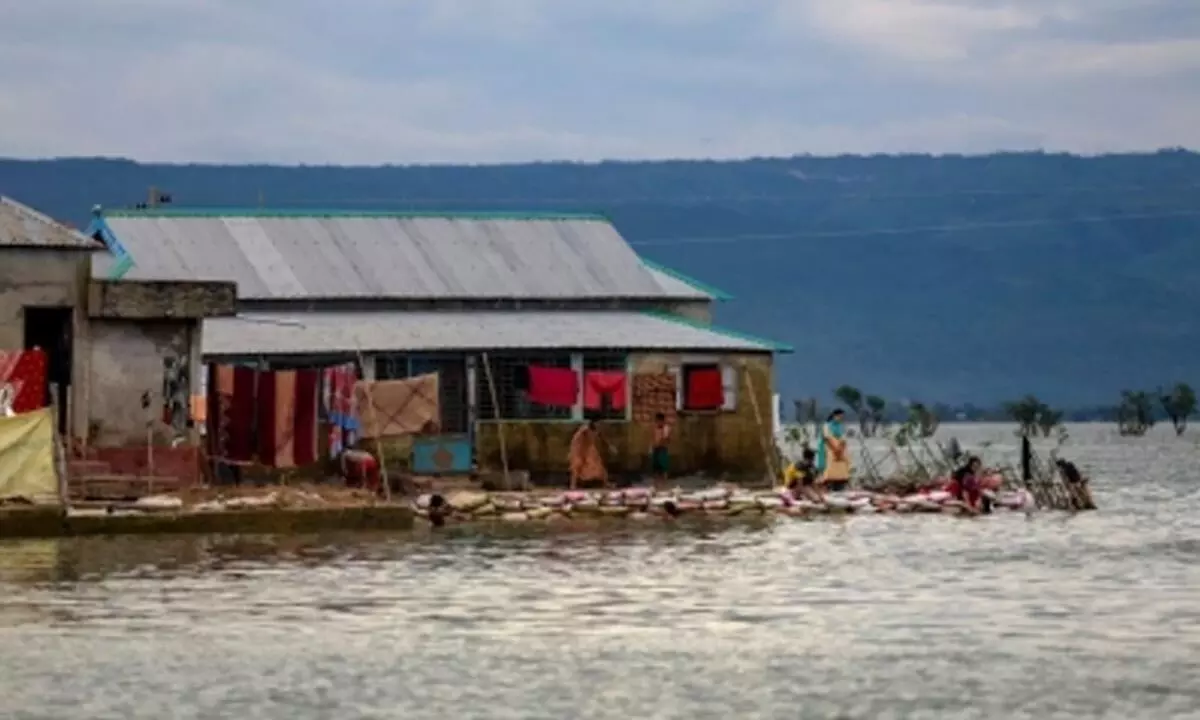Flooding affects 7.2mn people in Bangladesh: UN

Flooding affects 7.2mn people in Bangladesh: UN (Photo/IANS)
An estimated 7.2 million people have been severely affected in Bangladesh following devastating flash floods which began in May with a second wave starting around June 15, the UN said.
Dhaka: An estimated 7.2 million people have been severely affected in Bangladesh following devastating flash floods which began in May with a second wave starting around June 15, the UN said.
In a statement, the UN said that among the nine districts, the most heavily impacted are Sylhet, Sunamganj, Moulivazar, Habiganj and Netrakona, reports Xinhua news agency.
According to the statement, the Bangladeshi government has evacuated over 472,000 people to some 1,605 shelters.
There is a large-scale coordinated response operation under the government's strong leadership, says the UN.
The UN and NGO partners are supporting these efforts by delivering food assistance, drinking water, cash, emergency drugs, water purification tablets, dignity and hygiene kits and education support to the affected families.
On July 2-3, a joint mission of the UN, humanitarian donors, and NGO partners visited the flood-affected districts of Sylhet and Sunamganj.
According to the statement, Unicef is on the ground to protect children and to deliver safe water, nutrition and health services and supplies.
It re-allocated $2.8 million of internal resources to meet the emergency needs and has provided life-saving support to nearly 1 million people.
Also, the World Food Program (WFP) distributed 85 tonnes of fortified biscuits to 34,000 households in three districts.
Apart from this, the UN Population Fund (UNFPA) has provided referral support for pregnant women to access hospitals and positioned midwives to provide 24/7 emergency obstetric support.
UNFPA is also operating maternity waiting homes for pregnant women while they wait for institutional delivery.
And the World Health Organization (WHO) provided 250,000 water purification tablets to the affected people.
Despite these efforts, and due to the scale of the floods, there are areas still inaccessible that are cut off from rescue or relief, said the UN.
The shelters remain overcrowded as the flood waters recede slowly and the damage to homes is widespread. This has resulted in a lack of space and privacy which leaves women, girls and children particularly vulnerable.
In addition, some 60,000 women in the affected areas are pregnant. Of them, some 6,500 will give birth in the next month. With primary healthcare centres submerged and non-functional, most of these women have limited or no access to healthcare.
Where water has receded somewhat, more families will return to damaged homes, other will have to rebuild from scratch. Damaged latrines and water sources will also need to be repaired.
Children have lost three weeks of schooling already and their books have gotten washed away. This comes on top of the loss of schooling due to the Covid-related school closures in 2020-2021.
The UN said the Humanitarian Response Plan appeals for $58.4 million to provide essential needs for over 1.5 million targeted people in five heavily-impacted districts.










